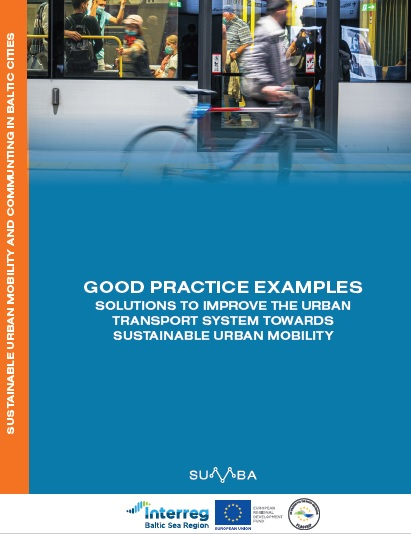There has been an intensive knowledge exchange of good practice solutions within the SUMBA consortium. Some of the findings are summarised in a compendium of problems and challenges in commuting countered by good practice solutions. With the aim of contributing to the existing knowledge of stakeholder groups, these solutions are presented in the document "Good practice examples: Solutions to improve the urban transport system towards sustainable urban mobility" in the form of case studies. As such, they are not intended to be universally applicable, but rather to serve as inspiration for cities to develop their own contextspecific solutions.
The larger issues that this compendium seeks to address are those created/compounded by large-scale car dependent commuting activities common in cities in the Baltic Sea Region (and elsewhere). These issues include climate change, congestion, air pollution, road safety, poor health, obesity, shortage of urban space for non-driving activities. Reducing commuting or redirecting it from private cars to more sustainable transport modes would help alleviate all of these important issues. As such, the good practice examples in this document point towards ways for addressing various challenges that are common when attempting to make current commuting patterns more sustainable.
Five main topics were identified which are common to the cities in the Baltic Sea Region, as they emerged from the discussions between the partner cities and from the results of the SWOT analysis carried out in each city.
The topics are:
• Transport and urban planning,
• Analysing the transport system,
• Infrastructure • Integrated ticketing and tariff system,
• Services.
Each of them represents one chapter of the document. The topics are described in more detail, their relevance for the topic of commuting is worked out and possible solutions and indicators of success are presented. Each chapter concludes with a detailed description of good practice solutions that have addressed the outlined challenges well.

